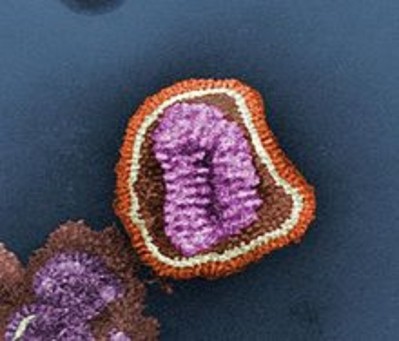MUGAS-funded Tamiflu analysis included fewer studies than Cochrane review

Last week, the Lancet published new meta-analysis of nine Tamiflu (oseltamivir) trials involving 4,328 patients, which concluded that the drug reduces the duration of influenza symptoms by 21% compared with placebo, 123 hours versus 98 hours.
The study was funded by the MUGAS Foundation, which is an organisation set up in 2013 to provide “a fair, transparent and independent way of addressing data transparency” in light of concerns about Tamiflu’s efficacy.
Efficacy concerns
A major source of these concerns was a review of 20 Tamiflu studies by the Cochrane Collaboration in 2014, which concluded that the antiviral only cut flu symptom duration by 0.7 days.
The Cochrane Collaboration also said there is no evidence the Roche drug reduces the number of hospitalisations or occurrence complications like pneumonia, bronchitis, sinusitis or ear infection in either children or adults.
Furthermore, according to the Cochrane authors, “Tamiflu also increased the risk of nausea and vomiting in adults by around 4 percent and in children by 5 percent. There was a reported increased risk of psychiatric events of around 1 percent when Tamiflu was used to prevent influenza.”
These findings contrast markedly with those of the MUGAS-backed research.
Co-author Stuart Pocock from LSHTM told in-pharmatechnologist.com “To shorten median flu duration by 25 hours is important, as is the substantial reduction in lower respiratory complications and hospitalistions."
Roche has always defended the efficacy of its product and disputed the findings of the 2014 Cochrane study, variously suggesting the organisation only a small about of the study data provided or conducted incorrect statistical analysis.
The Swiss drugmaker backed the findings of the MUGAS-funded study.
A spokesman told us “Roche welcomes third-party research in the interest of advancing science and believes that the MUGAS analysis provides a fair representation of the efficacy and safety profile of Tamiflu for the treatment of influenza in adults. The analysis was conducted by an independent group of renowned influenza experts.
He added that: “The MUGAS investigators used patient-level data from trials which allows greater precision in estimating clinical outcomes as compared to the study-level data used by the Cochrane Collaboration in their recent review.
MUGAS
According to the MUGAS website, participants in the project include academics, an observer from the infectious diseases society of America, journalists and five “informants” from Roche. Three members of the Cochrane collaboration declined invitations to take part.
The inaugural MUGAS meeting in 2013 was organised by the European Scientific Working Group on Influenza (ESWGI), an organisation backed by, among other firms, Roche and fellow neuraminidase inhibitor manufacturer GSK.
Roche also provided the ESWGI with an unrestricted grant to cover organisational costs as well as travel expenses for travel and accommodation for the 2013 meeting.










